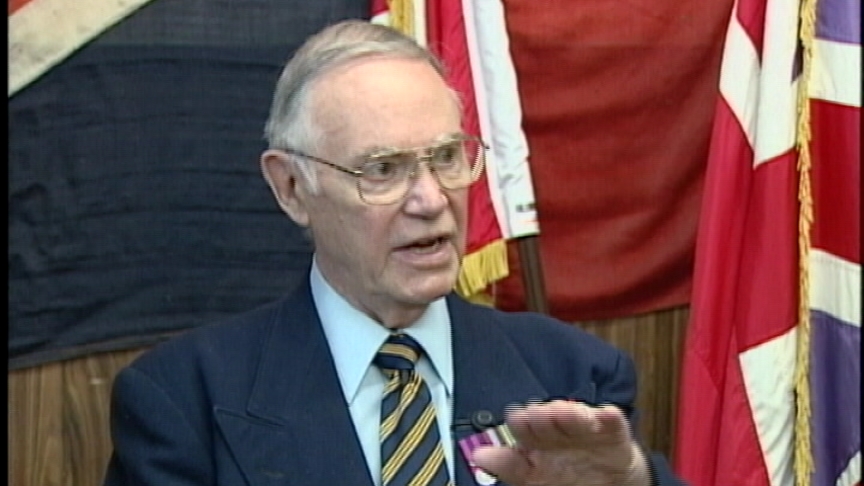Dealing With The Experience
Heroes Remember
Dealing With The Experience
Transcript
Description
Mr. Routledge made what some may feel were surprising decisions for his life in an effort to put the prison camp experiences behind him. He also expresses his deep feelings that Canadians need to understand what he and his comrades experienced in Hong Kong.
Ronald John Routledge
Mr. Routledge was born September 1, 1920. His father, a decorator by trade, was a member of the Regina Rifles and served in the First World War. Mr. Routledge came from a family of four children. He had three sisters, one older and two younger. His father encouraged him to join the Regina Rifles Regiment cadet program when he was 14. After completing high school, shortly before Canada declared war on Germany, he enlisted with the Regina Rifles. He enlisted with the artillery but soon switched to the Canadian Corps of Signals and trained as a wireless operator. In October, 1941, he and 32 other members of the Signals Corp were told they were headed overseas. They boarded a vessel in Vancouver, not knowing until they were near the Philippines that they were heading for Hong Kong. They eventually arrived in Hong Kong and were assigned to barracks at Shamshuipo. Mr. Routledge was wounded when the Japanese made their first attack on Shamshuipo in December, 1942. After spending time in hospital, he returned to continue his service as a wireless operator. He was taken POW on Boxing Day after the commanding officer of the troops on the Stanley Peninsula surrendered to the Japanese. Following his release at the end of the war, he was awarded the Distinguished Conduct Medal (DCM), the second highest award for bravery in the British Empire. Mr. Routledge remained in the army as a career soldier.
Meta Data
- Medium:
- Video
- Owner:
- Veterans Affairs Canada
- Duration:
- 02:19
- Person Interviewed:
- Ronald John Routledge
- War, Conflict or Mission:
- Second World War
- Location/Theatre:
- Hong Kong
- Battle/Campaign:
- Hong Kong
- Branch:
- Army
- Units/Ship:
- Canadian Signals Corps
- Rank:
- Sergeant
- Occupation:
- Wireless Operator
Related Videos
- Date modified:




